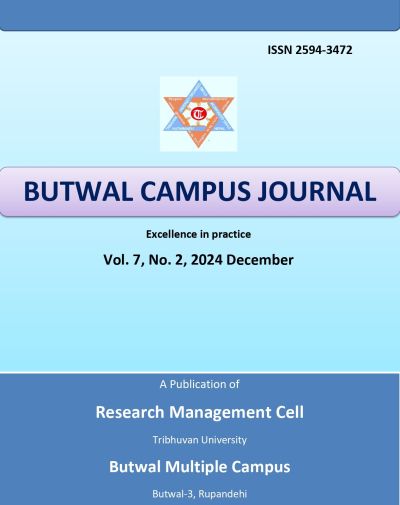Phytochemical Composition and Corrosion Inhibitory Efficiency of Tinospora cordifolia and Senna alata Plant Extracts on Mild Steel in Acidic Media
DOI:
https://doi.org/10.3126/bcj.v7i2.73175Keywords:
Phytochemicals, anticorrosion, Tinospora cordifolia, Senna alata, Langmuir adsorptionAbstract
Tinospora cordifolia and Senna alata are well-known medicinal plants recognized for their extensive antibacterial, antifungal, and therapeutic applications. In addition to their well-established medicinal values they show great promise as eco-friendly corrosion inhibitors. In this study, plant extracts from Tinospora cordifolia and Senna alata were used as sustainable inhibitors to prevent the corrosion of mild steel in acidic environments. Plant extracts were prepared using the Soxhlet extraction technique with water, hexane, and methanol as solvents. Qualitative phytochemical analysis revealed the presence of alkaloids, glycosides, coumarins, and terpenoids, which are known for their anticorrosive properties. The efficacy of the plant extracts as corrosion inhibitors was assessed using the weight loss method in 1 M HCl solution. An anticorrosion study indicated that the methanol extract of T. cordifolia attained the highest inhibition efficiency of 93.09%. In comparison, the aqueous extract of S. alata exhibited 86.81% efficiency at 1000 ppm concentration. The adsorption studies indicated that the inhibition process followed the Langmuir adsorption isotherm model. This study underscores the potential of adopting natural plant extracts as non-toxic and environmentally friendly corrosion inhibitors for practical industrial application.
Downloads
Downloads
Published
How to Cite
Issue
Section
License
Copyright is held by Research Management Cell, Butwal Multiple Campus

